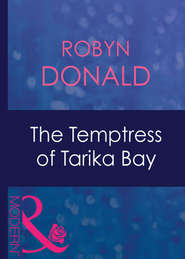По всем вопросам обращайтесь на: info@litportal.ru
(©) 2003-2024.
✖
The Mirror Bride
Автор
Год написания книги
2018
Настройки чтения
Размер шрифта
Высота строк
Поля
It had happened so abruptly; they’d spent the summer playing a game of flirtation and retreat, and she’d loved it—enjoying the power of her burgeoning femininity enormously, discovering that life could be a fascinating, exhilarating feast of the senses.
Not once had he touched her, but she’d known that he watched her, that there was a different gleam in his eyes when he looked at her, an exciting intensity that wasn’t there when he spoke to the other girls who had spent the summer trying to attract his attention.
And then one night after a barbecue at her parents’ place he’d kissed her. Lost in the wonder of his kiss, she’d pressed against him. In three days’ time he was going back to the Formula One circuits of the world, so this would be her only chance to see what it was like in his arms.
The gentle kiss had suddenly turned feral; she had gasped at the quick violence of his mouth, the way he’d held her against his hard, taut body, but she hadn’t struggled. Although it frightened her she’d wanted that fierce, heated tension—had wanted it all summer.
But the kiss had ended abruptly. Strong hands pushed her away by the shoulders, leaving her aching with frustration.
‘Don’t offer more than you want to give,’ he’d said in a thick, harsh voice. ‘You’ve had your fun teasing me, but that’s because I’ve let you. Don’t make the mistake of thinking that another man would be so easily kept at bay.’
And he had looked at her as though he’d despised her.
It had happened a long time ago, but a long-forgotten fear sent a chill slithering the length of her backbone. Drake Arundell was not a man to be threatened or intimidated.
Unconsciously she angled her chin at the photograph. Why should he have his photograph in the newspapers as an example to other New Zealanders when she and Simon struggled for every cent they had?
Swallowing the last remnant of his sandwich, Simon washed his knife and plate and dried them carefully. ‘I’ve got a new book,’ he prompted as he put the dishes away.
Olivia screwed up the sheet of newspaper and fired it into the rubbish bin. ‘We’d better fold these papers first,’ she said. ‘Then you can read to me.’ Reading time was the one part of the evening that was sacrosanct.
He glanced out of the window and pulled a face. ‘We’ll get wet.’
The rain had settled in now, and was beating with miserable determination against the panes.
‘It’s all right,’ she said. ‘I don’t have to do any more sewing, remember, so I can deliver them tomorrow morning.’
A fortnight later she’d almost accepted that Drake was going to ignore her letter, but after tidying the flat and exorcising some of her anger and frustration by viciously scrubbing the floor, she groaned when she looked at the battered alarm clock on the windowsill above the sink. Still another hour until the mail arrived.
‘I’ll go to the supermarket now, before it rains. And if a letter isn’t waiting for me when I get back,’ she said, baring her teeth at her reflection in the crazed mirror in the bathroom, ‘somehow I’ll come up with a way of making Drake Arundell’s life an absolute hell!’
An hour later she arrived back home feeling completely wretched. Instead of hanging off until the afternoon as it was supposed to do, the rain had dumped icy gallons on her. By the time she made it back to the flat she was coughing, and although she’d fought her head cold with most of the lemons from the spindly tree in the communal back yard she had a horrible suspicion that the infection was sinking to her chest.
Money for cough syrup would be at the expense of food, but, she decided as she hung her drenched umbrella and skirt above the bath, she would deal with that worry when it arrived—if it did. After rubbing her hair reasonably dry with a threadbare towel, she changed into a pair of old pink sweatsuit trousers and sat down with a mug of hot lemon juice and water, listening to her breath rattle in her chest.
If something happened to her, Simon would be completely alone.
‘The mail!’ she said, suddenly leaping to her feet. A hectic dash down to the letterbox through the rain revealed two circulars and the power bill.
‘Right,’ she said through gritted teeth as she pounded back up the unprotected steps, the first cold southerly of the year tearing at her clothes and hair. ‘Tonight I’m going to write you another letter, Drake Arundell, and it’s going to be a lot harder to ignore. And if that doesn’t work, I’ll—I’ll camp in your office until you agree to see me.’
Sudden, shameful tears clogged her throat; she swallowed and stubbornly set her mind to working out ways to apply pressure to a man who was determined to ignore her.
On her way to collect Simon from school she went into the corner dairy and again looked up under the As in the telephone directory. There was only one Arundell there—a D. Unless he was unlisted, it had to be Drake. When she had first seen his address she had been filled with a bitter, unpleasant resentment, because Judge’s Bay was a very up-market suburb on the other side of Auckland.
Surreptitiously she compared the address with the copy she had made before. No, she hadn’t made a mistake. Her mouth compressed into a straight line as she flipped through the pages to the Fs.
Drake Arundell wasn’t going to get away with it. This time she’d write to him at both his address and the FunNZ one.
On her way out she stopped at the rack of brightly coloured magazines by the counter. TV STAR’S LOVE CHILD REVEALED, the headlines on one screamed. ‘I AM DEVASTATED BY HIS INFIDELITY,’ WEEPS MODEL bellowed another, beneath a picture of a woman who looked as though she wouldn’t be able to pronounce any word of more than two syllables.
‘Do you want one, miss?’ the sari-clad owner said, stopping in her task of ripping the covers off several magazines.
Olivia smiled and shook her head, her eyes lingering on the gaudy covers. ‘Are they very popular?’
‘Oh, yes. These two—’ she indicated the biggest headlines ‘—are running neck and neck.’
‘You’d wonder at people who’d discuss their most intimate concerns with a journalist.’
The owner shrugged. ‘I believe they pay well.’
And if you were desperate—as desperate, say, as she was, Olivia thought—then that money might be a good reason for baring your soul to the public of New Zealand.
Impulsively she asked, ‘Could I have a cover?’
The woman looked surprised. ‘Well, I tear them off any that haven’t sold and send them back to the publisher so I don’t have to pay for them.’
‘Oh. I see.’ Olivia looked at the magazines again. ‘I didn’t realise.’ She smiled at the woman, said, ‘Goodbye,’ and left the shop.
The next morning she swept out the flat before embarking on the chore of washing their clothes; with any luck they’d dry enough to air in the hot water cupboard. A month previously the ancient agitator washing machine that lurked in the bathroom had clattered itself to a standstill, and although the landlord’s agent had promised to replace it, a new one hadn’t eventuated yet.
Determined to look on the bright side, Olivia admired the muscles she was developing in her arms as she hung the clothes out beneath a sky that promised at least a morning’s fine weather. After that she boiled up the bones the butcher always gave her on the pretext that they were for the dog—both of them well aware that there was no dog—and added vegetables she had bought yesterday from the bruised bin. Tonight they’d have the meat from the bones for their dinner, and tomorrow they’d drink the soup.
This afternoon, she decided, I’ll go and see the supermarket about a job again. With any luck they’ll respond to a bit of tactful nagging.
She had asked a fortnight ago, and been told that there was no opening. They’d taken her name and address and said they’d contact her, but it wouldn’t hurt to show her enthusiasm. Even though she knew there was no position for her. Possibly never would be.
Soon she’d be twenty-five, and it seemed as though her life had been an endless grind of work and worry and fear. Such dreams she’d had once, such hopes—all shattered.
‘That,’ she said aloud, ‘is enough of that! Self-pity is not going to get you anywhere.’ And then she began to cough, deep, barking paroxysms that shook her frame and hurt her throat and chest.
Unfortunately, telling herself that depression was the usual accompaniment to illness didn’t seem to help much; she still felt oddly lackadaisical.
‘I’ll make Simon a new pair of trousers,’ she said, using a false cheerfulness to force herself to do it. A month ago she’d bought a skirt at the op-shop which would cut up well.
Setting her lips into a firm line, she took out her old sewing machine—one which she’d earned in her wandering days. Another house-truck family owned it then, but the woman hated sewing. In return for making clothes for all the family, Olivia had been given the machine.
Normally she enjoyed the challenge of creating something new from something old, but after laying the material out on the table she put the scissors down and stared at it.
The last thing she wanted to do was sew.
Perhaps, she thought with a quick glance at the clock, she was hungry. However, the sandwich she made was so unappetising that she put it down after a couple of mouthfuls and sat at the table with her head on her arms, trying to block out the grey mist of hopelessness.
Someone knocked on the door.
A religious caller, she thought with foggy lethargy. Go away.
The knock was repeated—this time a peremptory tattoo that brought her to her feet.











